COMMENTS FROM KYLE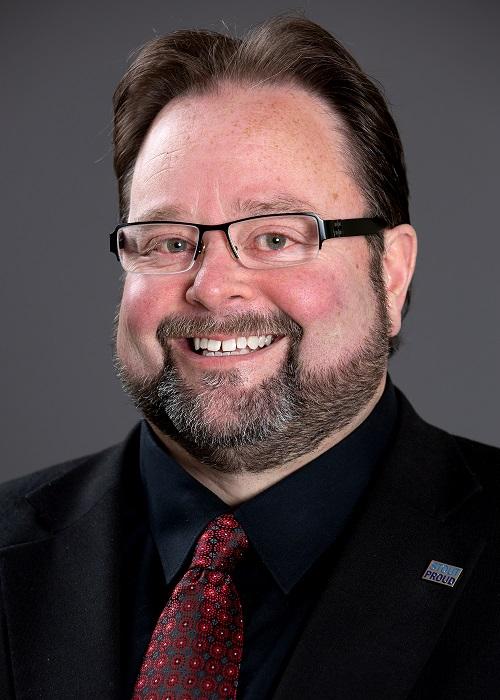
The SVRI team extends warm wishes for the new year and a new decade! As we head into the 2020s, I have been thinking a great deal about what the next ten years will teach us. What will we learn? What will we become? How will learning transform the University of Wisconsin-Stout, SVRI, and the vocational rehabilitation profession? Our response to constant change spurs learning, innovation, and transformation, and I anticipate the next ten years will bring many opportunities to the university, the institute, and the profession.
On the campus level, SVRI would like to welcome new Chancellor Katherine P. Frank, who begins her role in early March. She will provide leadership that is sure to transform the University of Wisconsin-Stout. Such changes give us opportunities to rethink how SVRI supports the larger campus community. Changes in higher education, demographics, technology, and workforce needs are challenging college campuses across the United States. How will our campus learn and evolve in the new decade?
At the institute level, SVRI plans to use learning to inform the 2020 strategic planning initiative. The plan will help us anticipate and map out innovative ways to meet the needs of the profession in the coming decade. This will allow us to remain at the forefront of implementing effective services to people with disabilities who want to build their careers, increase their independence, and achieve self-sufficiency. In tandem with our future-focused services approach, we are dedicated to sharing evidence-based and promising practices with working professionals in the field of vocational rehabilitation.
In an interdisciplinary collaboration with the College of Education, Hospitality, Health and Human Sciences, SVRI will have an opportunity to learn and share knowledge during the development of the new Center for the Study and Promotion of Health and Wellbeing.
At the professional level, SVRI is committed to improving public recognition of the value and expertise provided by the vocational rehabilitation counseling profession. SVRI will use knowledge mobilization techniques to promote evidence-based practices that can improve program outcomes and highlight the value of highly trained professionals. A brief example to share: SVRI is funded in part by VRTAC-TC Project E3 to produce programs and outcomes supporting universal technical assistance. In the past year, the Knowledge Translation team (including partner staff from ERI and Virginia Commonwealth) has produced ten webcasts, for which 4,503 persons were registered and 2,903 participated. Webcasts and other technology-based resources for training play an important role in maintaining active avenues for training and professional development. Many believe that the next ten years are crucial for the survival of the vocational rehabilitation profession. SVRI’s dedication to learning, innovation, and using technology to spread knowledge, will help ensure the profession thrives in a new decade.
So welcome to the 2020s. Are your ready to learn?
VOCATIONAL REHABILITATION IS TURNING 100
 2020 marks the 100 th anniversary of Vocational Rehabilitation. The Smith-Fess Act of 1920 went into law on June 2, 1920. This was the first federally funded program to assist individuals with disabilities who did not acquire their disability from serving in the military.
2020 marks the 100 th anniversary of Vocational Rehabilitation. The Smith-Fess Act of 1920 went into law on June 2, 1920. This was the first federally funded program to assist individuals with disabilities who did not acquire their disability from serving in the military.
The Rehabilitation Services Administration (RSA) has launched their “VR 100” webpage. They plan to share a theme each month that focuses on innovative programs and services. VR 100 will include consumer, customer, and business success stories. Watch for news about the two major events they plan to host this year.
SVRI NEW HIRES
Introducing Three Rehabilitation Specialists
The Self-Employment Outreach program is a partnership between SVRI and the Wisconsin Division of Vocational Rehabilitation. We are excited to introduce team members Tory World, Alex Toole, and Peter Gelhar. They are working in WDAs 2,6, and 10 to address the needs of persons with disabilities who are interested in self-employment options.
Tory World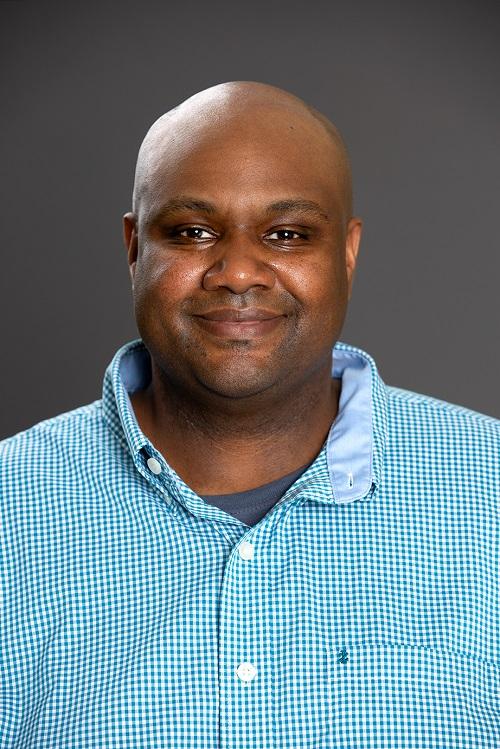
Tory is a native of Madison, Wisconsin, and graduated from Madison East High School. He earned a Bachelor of Science in Communication Arts from the University of Wisconsin-Madison. Tory is an experienced entrepreneur and has helped others launch businesses. He also worked for four years as an Economic Support Caseworker for Dane County Human Services. Tory will share his wealth of information about Madison’s growing tech sector and small business resources in the area. He is currently the CEO and founder of The Bev List app which is part of Isthmus Digital Corporation.
Tory is covering the Madison area.
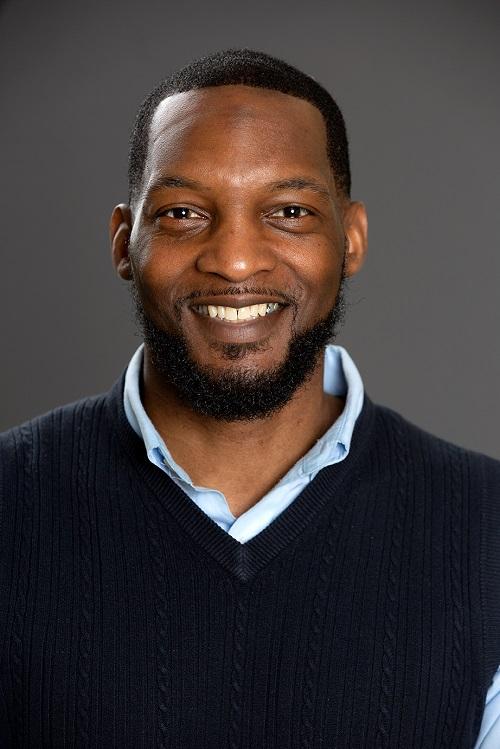 Alex Toole
Alex Toole
Alex graduated from Marquette University by way of University of Wisconsin-Madison. Alex has worked in non- profit/social service with The Boy Scouts of Milwaukee County, YWCA of Greater Milwaukee, and The Private Industry Council of Milwaukee County. He has worked to help youth and adults achieve employment success. For the last 15 years, Alex has been self-employed as an Independent Contractor Agent with State Farm Insurance.
Alex is covering the Milwaukee area.
Peter Gelhar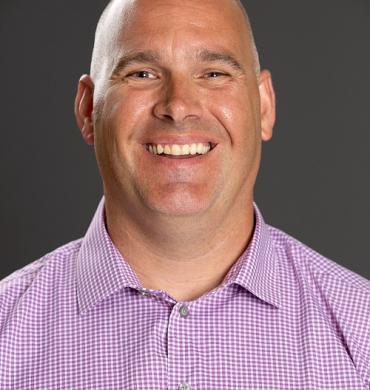
Peter received his Bachelor of Science from University of Wisconsin-Oshkosh in 1999 and subsequently went on to manage his family’s recycling business. After working in sales, Peter became a consultant and eventually president of his family’s recycling and brokerage firm. His business experience includes small start-up firms and Fortune 500 clients. Peter attributes his success to taking a team approach to business dealings.
Peter is covering the Wausau area.
Introducing Two Case Facilitators
SVRI is excited to welcome Gina Klukas and Claire Kraft to the SVRI family. They are our two newest Case Facilitators working within our Eligibility and Order of Selection Unit. Their education and experience are a welcome addition to the team.
Gina Klukas
Gina comes from Mid-State Technical College with 19 years of experience in Testing Services and as an Assistive Technology Specialist. She also worked at SVRI from 1995-2000 and held the roles of Vocational Evaluator, Intensive Vocational and Technology Evaluation Specialist, Trainer, and Rehabilitation Technologist.
Gina has a Doctor of Philosophy degree from Capella University in Education, Specialization in Instructional Design for Online Learning. She earned her master’s degree at UW-Stout, studying Vocational Rehabilitation with a specialization in Vocational Evaluation.
She also received her bachelor’s degree at UW-Stout, with a major in Psychology, and a minor in Sociology.
Claire Kraft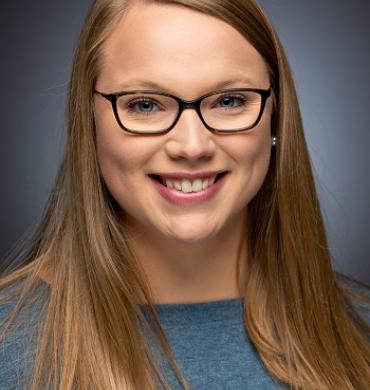
Claire is a recent Vocational Rehabilitation graduate from the University of Wisconsin-Stout and has worked in the human services field.
SVRI SERVICES UPDATES
In 2019 SVRI launched a new web form for service referrals to serve consumers more efficiently. This web form is quick, easy, and secure. If you haven’t used it yet, we encourage you to check it out. https://svri.secure.force.com/service/
SVRI’s Services staff continue to improve and enhance quality employment outcomes for individuals with disabilities.
What consumers and counselors are saying about SVRI Services:
- 100% of SVRI consumers who completed our satisfaction survey answered “Yes” when asked if they would recommend SVRI to others.
- When asked to rate their agreement with the statement “SVRI services were provided in a timely manner”, 100% of consumers selected “Strongly Agree” or “Agree” as their response.
- Counselors and case managers who completed a recent satisfaction survey were asked whether SVRI staff met the objectives identified at the time of referral. 100% of respondents who referred consumers for Assistive Technology and/or Benefits Analysis services indicated strong agreement with the statement.
SVRI would like to thank our consumers and counselors/case managers for taking time to provide us with feedback! This information is used to help us improve our programs and services.
SVRI ELIGIBILITY AND ORDER OF SELECTION UNIT UPDATES
SVRI’s Eligibility and Order of Selection Unit (EOS) continues to shorten the time needed to determine an individual’s eligibility for DVR employment and training services. Our eligibility determination model for processing Vocational Rehabilitation program applications continues to surpass the required 60 days to determine an individual’s eligibility for DVR services.
Case Closure Time
SVRI case closure average time 2018: 24 days
SVRI case closure average time 2019: 22 days
Number of Consumer referrals received by SVRI
2018: 9,967 people
2019: 10,470
During 2019, SVRI received an average of 201 cases per week. We received 503 more cases in 2019 than were received in 2018 and were able to decrease the case closure gap by 2 days.
Learn more about SVRI Services https://www.uwstout.edu/outreach-engagement/stout-vocational-rehabilitation-institute/svri-services
SVRI OPERATIONS UPDATES
The SVRI Operations Team – the Backbone of the Organization
SVRI’s Operations team members include Beth Biederman, Jennifer Gundlach-Klatt, Callie Harrison Kassow, and Debbie Hulleman. Along with student employee Gwen Northey, they keep the wheels turning on everything having to do with appointments, billing and salesforce; facilities management; communications, web analytics, social media and marketing efforts; finances, contracts, federal time and effort tracking, and travel.
SVRI’s stability today is due in large part to the excellent work of the Operations team members. In the course of a year, each of the staff members has a variety of reports to develop and share with the Exec team and the broader staff group. Whether providing a forecasting report of comparative data about services provided, a reconciliation report of expenses, a revised budget involving grant carryover, warnings that may impact travel, web analytics and social media efforts, or are shipping items to grant cohort members in a timely manner, these individuals provide seamless internal and external customer service.
The operations team recently participated in a grant development workshop with the RKMb team, in anticipation of group efforts to pursue grant funding. They also take advantage of the EDGE training programs and related opportunities offered on campus for professional development. Two Ops team members are taking classes toward degree programs (three if we include Gwen). SVRI supports and encourages their efforts in these areas, as we do for all staff members interested in professional growth opportunities.
The team also collaborated with the Exec team to revise the Policies and Procedures Manual, last updated in 2016. Each member had a role in review and revision of content.
The campus is currently engaged in a UW System-wide re-titling process. Based on the duties of each of their roles, we have made recommendations to accept or to request additional review of proposed titles across the entire department. We expect there to be some adjustments made to the Operations team titles (and a few others), due in part to the additional duties some have assumed in the past few years. Their work is spread across all accounts and departments. “Complexity” could be the middle name of each of these good people, because the aspects of their roles are so diverse and layered. They provide the backbone of this organization, allowing SVRI to innovate and grow.
SVRI RESEARCH AND GRANT UPDATES
All three of SVRI’s major grant projects are wrapping up on September 30 of this year. Staff members are engaged in writing grant proposals for future projects with partners from across the nation, as well as in writing for publication and discussing the processes of project evaluation(s). 2020 is a huge year for the RKMb staff members! Thanks, RKMb Team!
SVRI RKMb staff members include Amanda Schlegelmilch, Matt Roskowski, Heidi Decker-Maurer, Erin Nierenhausen, Beth Gaertner, Terry Donovan, Cayte Anderson, Ellie Hartman, Jenn Gundlach-Klatt, and Mary McManus.
As Principal Investigator for VRTAC-TC Project E3, SVRI Executive Director Kyle Walker is also part of the team. Jeff Lund teaches the CRC Exam Prep course (along with his Services roles in vocational evaluation and pre-driving evaluation).
Here are some highlights:
Wisconsin PROMISE work is focusing on content sustainability into the future. Right now, featured content is still available at 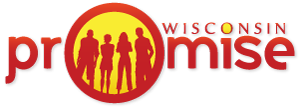 https://promisewi.com/. The new Transition Guide https://promisewi.com/transition-guide/ is also available in hard copy and is a product developed by many dedicated collaborators on this project, including staff members from SVRI!
https://promisewi.com/. The new Transition Guide https://promisewi.com/transition-guide/ is also available in hard copy and is a product developed by many dedicated collaborators on this project, including staff members from SVRI!
We encourage you to take some time to look at the videos about Wisconsin PROMISE youth https://promisewi.com/videos/ to get a real flavor of the impact Wisconsin PROMISE has had on our State’s youth. Ellie Hartman, project manager for Wisconsin PROMISE, has kept a blog sharing PROMISE highlights, available at https://promisewi.com/ellies-updates_participant-highlights/. The working stats report is available at https://promisewi.com/download/WI-Promise_WorkingStats.pdf.
For a deeper dive, The Journal of Vocational Rehabilitation has a special 2019 double issue dedicated to Wisconsin PROMISE including publications written by Wisconsin PROMISE SVRI staff members. Wisconsin PROMISE project manager, Dr. Ellie Hartman, sent the following note to staff in the fall:
We are pleased to share that a new special edition, double issue of the Journal of Vocational Rehabilitation focused on design, implementation and impact of the national PROMISE demonstration is available online. Volume 51, Issue 2 can be found online and the entire special edition is open sourced.
https://content.iospress.com/journals/journal-of-vocational-rehabilitation/51/2?start=0
Ellie, Cayte Anderson, Amanda Schlegelmilch and Matt Roskowski are all published in the Journal. Former SVRI Executive Director Dr. Cayte Anderson was a co-guest editor for the special edition.
Ellie, Cayte and Amanda were all involved in presenting about PROMISE at national conferences this year. Matt Roskowski, Jenn Gundlach-Klatt, Heidi Decker-Maurer, and Mary McManus are also engaged on the PROMISE team activities. Ellie is now employed by UW-Madison but remains with SVRI in the project manager role.
Cayte is still on board at SVRI for the remainder of Wisconsin PROMISE efforts and as Principal Investigator for the PEQA-TAC grant.
PEQA-TAC
The Vocational Rehabilitation Program Evaluation and Quality Assurance Technical Assistance Center (PEQA-TAC) is funded by the Rehabilitation Services Administration (RSA) with the intent to enhance program evaluation capacity within the public vocational rehabilitation program. Dr. Cayte Anderson is the Principal Investigator on the project. Partners include UW-Madison, Michigan State University, Employment Resources, Inc. (ERI), and the Council of State Administrators of Vocational Rehabilitation (CSAVR) with each partner serving in a key project role.
PEQA-TAC Initiates a Seventh Cohort
There are currently 40 state vocational rehabilitation programs engaged in the PEQA online training program across multiple cohorts since October 2016. As of January 2020, a seventh cohort of seven participants will further extend the outreach effort of this national technical assistance center project. Participants work individually or in teams to complete the program curriculum. In addition, they design and implement a capstone evaluation project that will be meaningful to their State agency and approved by the agency director.
Completed Capstone Projects
Six of the completed capstone projects are available for review at https://peqatac.org/capstone-projects/. Capstone presentations have been offered at the CSAVR Conference, the Summit Conference on Performance Management Excellence, and through online webinars. An additional 22 capstones are in varying stages of development and implementation with several being presented in April at the Spring CSAVR Conference in Bethesda, Maryland.
Advanced Workshops were delivered in Year 4 at the Summit Conference on Performance Management Excellence held in Portland, Maine, and in on-line webinar formats. During Year 4, a total of five (5) advanced workshops were delivered with 712 individuals collectively participating between the online and in-person events. 610 participated online and 102 in-person.
The Summit Conference on Performance Management Excellence hosted a total of 188 participants in September 2019: one of the highest attendance figures in the history of the conference. Thirty-seven states and the District of Columbia were represented, along with 17 colleges and universities, four additional grant-funded projects (AIR/KTER, PROMISE, ROI, WINTAC) and five business organizations (Alliance, Inc., Ashley Consulting LLC, CareerSource Florida, CSAVR, and Market Decisions Research). Alliance, Inc. and Market Decisions Research also provided sponsorship for the event.
The AIR/KTER State of the Science conference was held within the structure of the Summit Conference, providing a bridge for the KT effort that informs public policy and process. RSA Commissioner Mark Schultz was the keynote presenter, along with Christopher Pope, and members of the RSA data team.
The PEQA-TAC grant provides funds to support SVRI management of the Conference, and coordinate efforts in conjunction with the Summit Group CoP and the Navigators. The Fall 2020 conference will be held September 16-18 at the Rosen Centre in Orlando, Florida https://peqatac.org/summit-conference-2020-save-date/. Join your peers to collaborate with VR program evaluators and others interested in creating excellence within state VR agencies! Explore new and proven paths to excellence in performance management and quality assurance in the state VR system. The call for proposals to present on VR program evaluation, quality assurance, continuous improvement and related research is due March 13, 2020. Visit the 13th Annual Summit on Performance management Excellence website for updates and to learn more https://peqatac.org/summit-conference/proposals/.
Project E3 - The Vocational Rehabilitation Technical Assistance Center for Targeted Communities (VRTAC-TC) is designed  to improve employment outcomes of persons with disabilities from traditionally marginalized communities. The grant aims to increase vocational rehabilitation participation of persons with disabilities from these targeted communities leading to greater quality employment outcomes. Kyle Walker, SVRI’s Executive Director, is the Principal Investigator for our efforts on this project. Other staff members assigned to Project E3 include Heidi Decker-Maurer, Matt Roskowski, Terry Donovan, Beth Gaertner, Jenn Gundlach-Klatt, Amanda Schlegelmilch, Beth Biederman and Mary McManus.
to improve employment outcomes of persons with disabilities from traditionally marginalized communities. The grant aims to increase vocational rehabilitation participation of persons with disabilities from these targeted communities leading to greater quality employment outcomes. Kyle Walker, SVRI’s Executive Director, is the Principal Investigator for our efforts on this project. Other staff members assigned to Project E3 include Heidi Decker-Maurer, Matt Roskowski, Terry Donovan, Beth Gaertner, Jenn Gundlach-Klatt, Amanda Schlegelmilch, Beth Biederman and Mary McManus.
Project partners include UW-Madison, University of Illinois Urbana Champaign, University of Kentucky, George Washington University, CSAVR and Southern University at Baton Rouge (SUBR). SUBR is also in the lead on the entire project.
SVRI is working specifically with VR and community agency staff in North Carolina and New Hampshire to increase VR participation among persons from targeted populations. These high-leverage groups with national applicability are underserved groups who have achieved substandard performance with needs in multiple locations across the country. Within the grant structure, these persons include: residents of rural & remote communities, adjudicated adults and youth, individuals with disabilities in foster care, individuals with disabilities receiving financial assistance, culturally diverse populations, high school dropouts, functionally illiterate people, persons with multiple disabilities, as well as SSI and SSDI recipients. We have also traveled to South Carolina, Oregon, California, and Milwaukee in support of these efforts with our project partners and collaborators.
The Knowledge Translation and mobilization team provides support to all of the partners and to the Evaluation team for the entire project. KT partners include ERI of Madison, WI, and Virginia Commonwealth University. The following elements are presented in support of Project E3 and available on the website.
Plain Language Summaries of recent research are available on the website https://projecte3.com/category/activities/research/research-summary/.
Webcasts are also posted. Project E3 is pleased to provide recorded versions of our webcasts on topics designed to improve vocational rehabilitation services for the most underserved groups of people with disabilities.
To date, our webcasts have included topics on employment and disabilities, motivational interviewing, youth and disabilities, disability benefits, and poverty and disability. These webinars are attended by an average of 300+ Vocational Rehabilitation professionals from varied state, federal, and community agencies throughout the United States.
Webcasts are free, but registration is required. You can find a list of upcoming webcasts on the website as they become available https://projecte3.com/webcasts/#upcoming. Each webcast offers 1 CRC credit upon submission of the evaluation form. These popular webcasts are archived for future viewing along with additional resources and are eligible for 1 CRC. These can be found at this link https://projecte3.com/webcasts/. This project will have produced nearly 40 webcasts by the end of September 2020.
Podcasts are being produced to highlight efforts made in some of the 12 states impacted directly by Project E3.
The Community of Practice (CoP) provides online meeting spaces for professionals helping people with disabilities from underserved communities achieve their independent living and employment goals. A few communities of practice are open for any practitioner to join, while others are limited to project participants. If you have questions, use the contact us section of the website: https://worksupport.com/targeted_communities/ask/
A Research article database is housed at Virginia Commonwealth University. This project is funded by the U.S. Department of Education, Rehabilitation Services Administration (Grant # H264F15003). https://projecte3.com/about/
Learn more about SVRI's Research and Innovation https://www.uwstout.edu/outreach-engagement/stout-vocational-rehabilitation-institute/research-and-innovation
SVRI ACTIVITIES
Courses Taught at SVRI
A CRC Prep Workshop facilitated by SVRI’s Jeff Lund is popular both locally and nationally. The number one priority of the workshop is to offer support to individuals who are preparing for the CRC exam. These eight-week workshops are optimally scheduled to prepare CRC applicants up to their exam date. The workshop provides weekly emails to help participants stay on track, along with weekly text messaging featuring study tips.
For CRC applicants who would like to take more time to prepare, six-month workshops are available and include guidance from our facilitator for the first eight weeks. After having revised the content two years ago to reflect needed changes, course enrollment continues to increase.
Here are the numbers:
August 8 – October 3, 2019: 30 registrations
January 9 – March 5, 2020: 47 registrations
Next courses:
May 14 - July 9, 2020
August 6 – October 1, 2020
Registration can be found here: https://secure.touchnet.com/C21720_ustores/web/classic/store_main.jsp?STOREID=58&SINGLESTORE=true
Erin Nierenhausen, Beth Gaertner, Kyle Walker and others are working on development of two additional courses. We hope to share more detail with you in the next issue of the newsletter.
Additional SVRI Training resources can be found on our website https://www.uwstout.edu/outreach-engagement/stout-vocational-rehabilitation-institute/svri-training-and-online-classes




